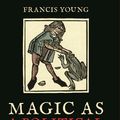
Magic as a Political Crime in Medieval and Early Modern England: A History of Sorcery and Treason
Francis Young
Treason and magic were first linked together during the reign of Edward II. Theories of occult conspiracy then regularly led to major political scandals, such as the trial of Eleanor Cobham Duchess of Gloucester in 1441. While accusations of magical treason against high-ranking figures were indeed a staple of late medieval English power politics, they acquired new significance at the Reformation when the 'superstition' embodied by magic came to be associated with proscribed Catholic belief. Francis Young here offers the first concerted historical analysis of allegations of the use of magic either to harm or kill the monarch, or else manipulate the course of political events in England, between the fourteenth century and the dawn of the Enlightenment. His book addresses a subject usually either passed over or elided with witchcraft: a quite different historical phenomenon. He argues that while charges of treasonable magic certainly were used to destroy reputations or to ensure the convictions of undesirables, magic was also perceived as a genuine threat by English governments into the Civil War era and beyond.
Booko found 3 book editions
Product filters
| Product |
Details
|
Price
|
New
|
Used
|
|---|---|---|---|---|
|
|
New: Being refreshed...
Used: Being refreshed...
|
New: Being refreshed...
Used: Being refreshed...
|
Being refreshed... | Being refreshed... |
|
|
New: Being refreshed...
Used: Being refreshed...
|
New: Being refreshed...
Used: Being refreshed...
|
Being refreshed... | Being refreshed... |
|
|
New: Being refreshed...
Used: Being refreshed...
|
New: Being refreshed...
Used: Being refreshed...
|
Being refreshed... | Being refreshed... |
Booko collects this information from user contributions and sources on the internet - it is not a definitive list of editions. Search Booko for other editions of Magic as a Political Crime in Medieval and Early Modern England: A History of Sorcery and Treason.






















